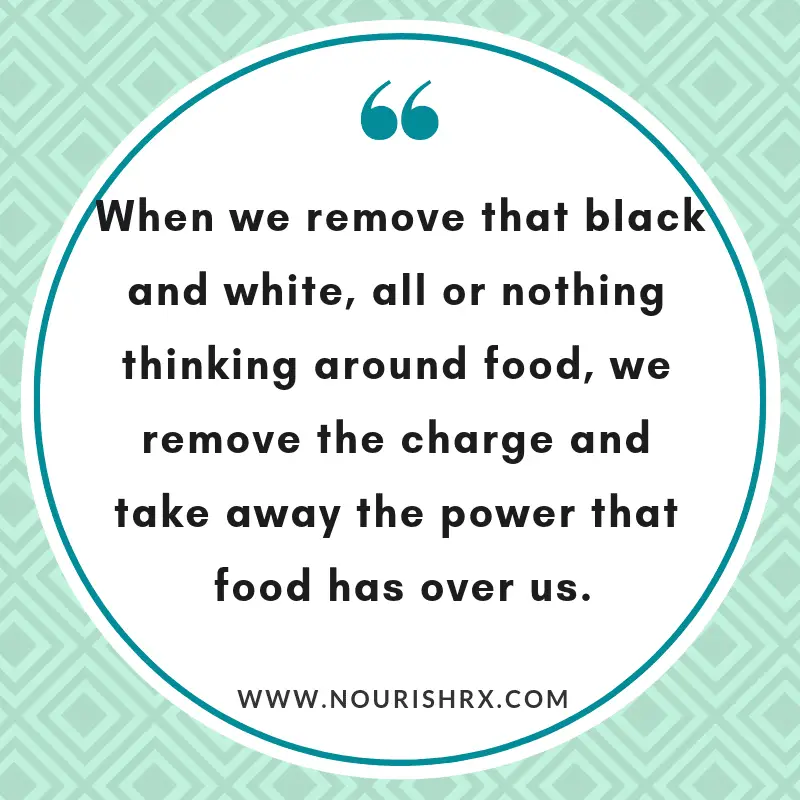Today we talk about a powerful four step process to so we can learn how to not stress eat and stop stress eating.
Below are the four steps but it’s important to remember to go through these steps while speaking towards your feeling mind.
Basically you must go through the steps, say the phrases with emotions mixed into your voice.
STEP 1. Express unconditional acceptance of internal experiences.
STEP 2. Offer understanding of internal experiences.
STEP 3. Remind and reassure: Inform your feeling self that your Inner Nurturer is on the scene and ready to help.
STEP 4. Offer love and support: Flood your feeling self with loving and supportive phrases. Bonus – physical offer comfort: Calm your feeling self with soothing words and gestures.
STEP 1. Express unconditional acceptance of internal experiences.
In this first step of self-validation, our Inner Nurturer uses kind, loving, compassionate phrases to reassure our feeling self that the feelings, needs, and thoughts we are experiencing are acceptable and valid.
What is your ‘Inner Nurturer’?
Your inner nurturer is the opposite voice of judgment.
So normally you have your judgmental mind. Your judgmental mind says all sorts of things like:
- you aren’t good enough
- deep down, you’re stupid
- if people really knew the true you, they wouldn’t like you
Sometimes the voice of judgment is loud. Other times the voice of judgment is soft and quiet, the voice of self-doubt. Other times the voice of judgment triggers emotional eating … “Oh, yeah, you’re telling me I should be skinny … well, I’ll gain 10 lbs just to spite you!!!“
So our inner nurturer voice is the opposite of all those voices. It’s this voice we must practice in order to learn how to not overeat!
The inner nurturer voice is calm. It’s compassionate. It is curious and asks “What lead up to the binge?” and “What could I do differently next time?“
It’s important that we remind ourselves every day that it’s okay to feel all of our feelings, and that it’s okay to have needs and to struggle with self-defeating thoughts.

But how do you develop your inner nurturer voice?
Well… That’s what we’re doing here in this post.
We are going through a 4-step sequence of emotional thought patterns which facilitates development of your inner nurturer.
Basically we’re learning a 4-step Inner Nurturer sequence.
By learning this sequence, and by learning to practice speaking to ourselves in our inner nurturer voice … you can learn how to not stress eat.
So are you ready to learn how to not stress eat? It all begins by…
Words to Communicate Unconditional Acceptance
- “It’s okay to be upset.”
- “It’s all right to have these feelings.”
- “All emotions are valid.”
- “It’s okay to show your emotions.”
- “It’s perfectly okay to feel this way.”
- “These feelings are real.”
- “Anything and everything you feel is okay.”
- “You have every right to be upset about this.”
- “All feelings are acceptable.”
- “Feelings convey important information.”
- “It’s okay to be sad. It’s okay to cry.”
- “You’re ok. It’s all right to feel worried.”
- “It’s okay to feel frustrated, lonely, ashamed, guilty, and so on.”
- “You’re angry. It’s okay to feel like you want to lash out.”
- “It’s okay to feel panicked about this.”
- “You just experienced a frightening event; it’s okay to feel fear and for your heart to race.”
- “You’re nervous. It’s all right to have butterflies in your stomach.”
- “It’s okay to feel tense and jittery after something like that.”
- “Yes, this situation is unsettling. You are all right to feel shaky.”
- “It’s all right to be happy.”
- “It’s okay to show your excitement.”
- “You’re okay. It’s all right to need that.”
- “It’s okay to have needs.”
- “You’re ok. You are all right to need comfort and soothing.”
- “It’s okay to need ease and downtime.”
- “It’s okay to think that way; you’re upset.”
- “It’s all right to be having that thought.”

Step 2. Offer Understanding of Internal Experiences
It’s natural for us, even as adults, to seek understanding from others.
Life can be confusing and challenging at times. It feels comforting and calming to get feedback that what we’re experiencing is normal and makes sense.
Feeling understood is a powerful experience, and it strengthens our resilience and helps us access our willingness to persevere.
We must also be capable of giving to ourselves the understanding that we seek from others.
Let me repeat this point again and again and again! We can begin to meet most of our needs ourselves! Heck, we can even meet most of our needs ourselves!
Now to be normal with food you DO NOT need to be a perfect person.
To be normal with food you just able to start meeting your own needs on your own.
Like if you are desperately stressed and lonely and use food to cope with your feelings … we do NOT need you to become popular and totally relaxed before you stop stress eating. Heck no!
We just need you to start recognizing your emotional needs, in this case the need for companionship and stress-relief. We need you to start meeting these emotional needs.
If you can just become aware of your needs and make some small, baby steps towards meeting your emotional needs – this will be enough to stop stress eating uncontrollably.
Let me repeat- you ca have a pretty normal relationship with food if you can start meeting your emotional needs.
This is a big cause for celebration because you don’t need to be perfect – just good enough!
Because the simple truth is that we may not always be able to receive understanding from other people when we need it.
Other adults are busy meeting their own needs and obligations.
The truth is, you are in the best position to offer yourself the understanding you yearn for — you know what you’re going through and what you need better than anyone else.
And you have a kind, loving, and wise voice within that is instantly available to offer you understanding.
Now … you might really believe you have this resource within you. But that’s why we’re practicing these 4-steps. So that you can develop this voice within you and use it in real life.
In this second step, your Inner Nurturer (the voice we are developing right now) reminds you that not only is it acceptable to feel any feeling, have any need, and think any thought, but that all of your feelings, needs, and thoughts are understandable as well.

Offering Understanding
- “It makes sense that you’re feeling this way.”
- “I can see how you could feel that.”
- “I hear you.”
- “Given what you’ve been through, it’s natural to feel this way.”
- “Anyone else would feel the same way in this situation.”
- “I don’t blame you for feeling that — it makes perfect sense.”
- “It’s totally understandable to feel that way.”
- “I understand how difficult this feels for you.”
- “I see you’re worried, and it makes sense to be worried.”
- “This is a big deal — it’s understandable that you feel concerned.”
- “It’s natural for your heart to be racing after a confrontation.”
- “That news was shocking — of course you’re feeling numb.” “Anger sounds appropriate when someone attacks you like that.”
- “It makes sense to feel relief now that it’s all behind you.”
- “You’re feeling proud of yourself, and that’s understandable.”
- “Of course you’re feeling excited. This is something to celebrate!”
- “Feeling drained after a day like today sounds realistic.”
- “For sure you need a break after this.”
- “That need makes sense in this situation.”
- “It’s completely understandable to need this.”
- “It makes sense to think that way about the situation.”
- “I can understand your thinking that.”
Step 3. Remind and reassure: Inform your feeling self that your Inner Nurturer is on the scene and ready to help.
Once you’ve popped the hood and validated your feelings, jot down a few sentences in your journal that convey to your feeling self that your Inner Nurturer is on the scene and available.
Pick phrases that really resonate with you — ones you find particularly nurturing.
Remind and Reassure
- “I am here with you now — everything will be all right.”
- “I am closer to you than your breath.”
- “You are never alone — I am always with you.”
- “I’ve got your back.”
- “I am here to help.”
- “You can count on me.”
- “I am by your side.”
- “You are always safe with me.”
- “We will get through this together.”
- “Your feelings are very important to me.”
- “I can and will take care of you and help you meet your needs.”
- “Your needs are very important to me.”
- “We’ll take baby steps together — come on, hold my hand.”

Step 4. Offer love and support: Flood your feeling self with loving and supportive phrases.
Take the time to write a couple of phrases of love and support to your feeling self.
Select phrases that really call to you. Don’t rush through this step. You deserve the same loving-kindness that you offer others.
Try to feel the love and support you’re giving yourself.
Again, this is simply practice. If you don’t have an inner nurturer voice already … if you need to learn how to not stress eat …
Then you must dedicate some time to practice these concepts!
Your default inner voice of judgment and comparison is one of the primary culprits of stress eating.
Learning how to not stress eat at the fundamental level requires learning how to actually love yourself.
What does love yourself mean? That might sound very vague, but I mean this practically speaking.
We all know a loving, kind, warm, patient, gentle tone of voice. On the other hand we all know when our friends are beating themselves up and being too hard on themselves.
Yet for some reason we sometimes don’t know our own inner critic. We don’t know our own voice of internal love too.
So today we are practicing the internal voice of love, which is a practical way of loving yourself and not some vague-hippie dippie thing.
Don’t worry if it still feels awkward using this voice and talking to yourself in this way.
It will take time for this voice to feel natural, and you may have to “fake it until you make it.” You can think of this step as a mini self-lovefest. This is how you reduce stress!
Offer Love and Support
- “I love and care about you.”
- “You are very dear and special to me.”
- “Did I tell you today how much I love you?”
- “Did I tell you how important you are to me?”
- “I will always be here to love and support you.”
- “My love and care for you are unconditional.”
- “I love you just as you are.”
- “You can totally be yourself with me.”
- “You don’t have to be perfect for me to love you.”
- “I love you even when you make mistakes.”
- “You can always count on me.”
- “I will never abandon you.”
- “I will be here for you forever.”
- “You are safe here with me.”
- “I believe in you.”
- “I will always believe in you.”
- “You are incredible!”

SOOTHING GESTURES
- Gently stroke your face.
- Stroke yourself from your shoulders to your elbows.
- Hold or hug yourself.
- Rock your body.
- Place your hands on your heart.
- Place your hands on the sites of uncomfortable bodily sensations.
- Hug a pillow while lying in a fetal position.
- Softly rub your hands together.
- Massage your head and neck.
- Gently massage different body parts. Stretch your head from side to side.




